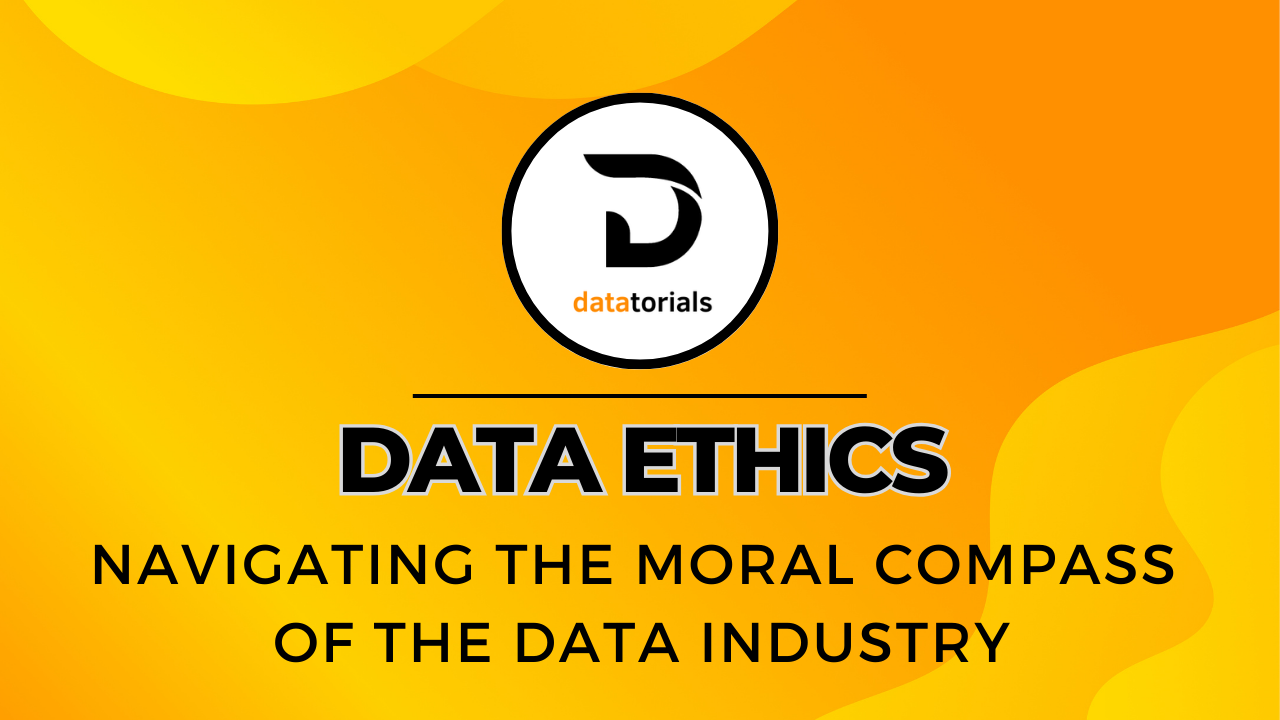Data Ethics: Navigating the Moral Compass of the Data Industry

Introduction
The data industry has transformed the way we live, work, and connect. It’s enabled groundbreaking innovations, driven economic growth, and improved our quality of life. However, this incredible power comes with a responsibility – the responsibility to navigate the intricate ethical landscape that surrounds data collection, processing, and utilization. In this blog, we will explore the nuanced world of data ethics, the challenges it presents, and the principles guiding responsible data practices.
Understanding Data Ethics:
Data ethics is the study of moral principles governing the collection, use, and sharing of data. It delves into questions like:
Privacy: How do we respect individuals’ rights to privacy in an increasingly data-driven world?
Transparency: What information should organizations disclose about their data practices?
Fairness: How can we ensure that data-driven decisions are fair and do not discriminate against certain groups?
Accountability: Who should be responsible when data practices lead to harm or misuse?
Challenges in Data Ethics:
Ethical dilemmas in the data industry are complex and multifaceted. Some key challenges include:
Privacy vs. Utility: Balancing the need for privacy with the potential societal benefits of data utilization is a constant challenge.
Algorithmic Bias: Algorithms can perpetuate biases present in training data, leading to unfair outcomes, particularly in areas like hiring or lending.
Data Ownership: Defining who owns data, especially data generated by individuals, is a contentious issue.
Data Security: Protecting data from breaches and cyberattacks is an ethical imperative.
Principles of Data Ethics:
Several principles guide ethical data practices:
Informed Consent: Individuals should be informed about how their data will be used and have the option to consent or opt out.
Data Minimization: Collect only the data necessary for the intended purpose, reducing the risk of misuse.
Fairness and Bias Mitigation: Employ algorithms and practices that avoid discrimination and promote fairness.
Transparency: Organizations should be transparent about their data practices, making it clear what data is collected and why.
Ethics in Data Science and AI:
Data scientists and AI practitioners play a pivotal role in ensuring ethical data practices:
Ethical AI Design: Developing AI systems that prioritize fairness, transparency, and accountability.
Bias Detection and Mitigation: Employing techniques to identify and address bias in training data and algorithms.
Continual Assessment: Regularly assessing AI systems for ethical concerns throughout their lifecycle.
Data Ethics in Business: Businesses must embrace ethical data practices as a competitive advantage and a matter of trust:
Data Governance: Establishing clear data governance frameworks and practices to ensure ethical data handling.
Consumer Education: Educating customers about data practices and providing options for data control.
Responsible AI Adoption: Implementing AI in ways that respect ethics and societal values.
Data Ethics in Healthcare and Research:
The healthcare and research sectors must adhere to stringent ethical standards:
Patient Consent: Ensuring patients are informed about how their health data will be used and giving them control.
Research Ethics: Conducting research with respect for participant privacy and informed consent.
Data Security: Protecting sensitive health data from breaches and unauthorized access.
The Future of Data Ethics:
The future of data ethics will be shaped by technological advancements and societal norms:
Regulation: Expect more stringent data ethics regulations, similar to GDPR, to protect individuals’ rights.
AI Ethics Boards: Organizations may establish ethics boards to oversee AI and data practices.
Public Awareness: As people become more aware of data privacy and ethics, they will demand responsible practices.
Conclusion
Data ethics is not a static concept but a dynamic and evolving one. It’s a reminder that while data offers immense potential, we must harness it responsibly, respecting individuals’ rights, and considering the broader societal impacts. In an era where data is the new currency, ethics must remain our guiding light, ensuring that the data industry serves the greater good while protecting individual rights and values.
